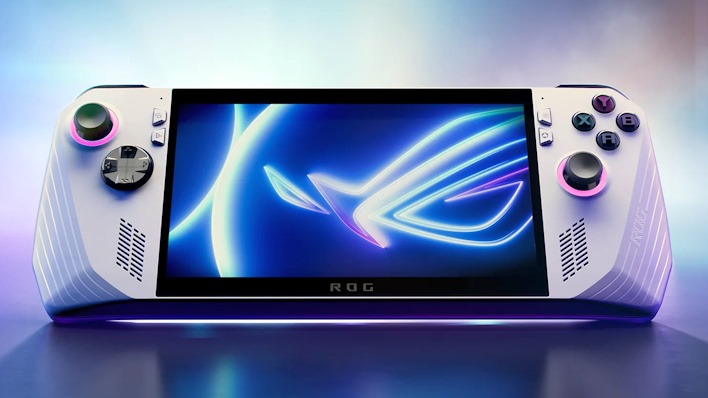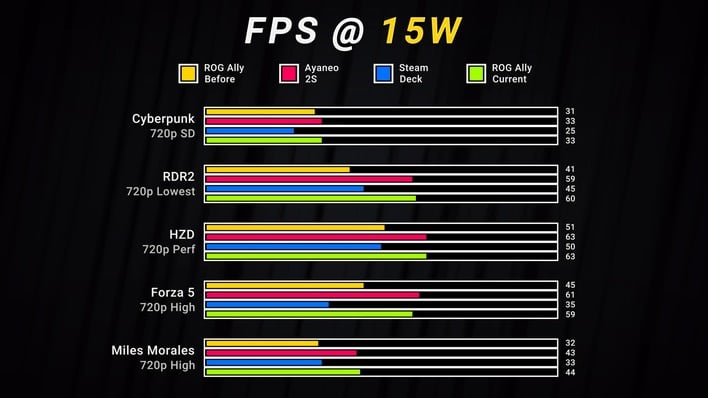ASUS ROG Ally Firmware Update Brings Huge Performance Gains For Low-Power Gaming

We actually have an Ally handheld in-house for testing right now, but that's been complicated considerably by continuous updates from ASUS that have radically altered the way the machine handles and performs. These updates have almost all been for the better, so we're pleased with ASUS' support of the system, but it does make life difficult as a hardware reviewer.
We're not the only people confounded by these changes. Over on YouTube, Dave2D has a video up (embedded below) lamenting the fact that many outlets have already posted their ROG Ally reviews using older drivers and firmware versions that don't represent the performance or capabilities of the final machine.
Benchmarks: Dave2D on YouTube
Dave2D's video is pretty close to a full review of the system, so we won't go over everything he says there—after all, we're preparing our own full review of the machine with some sixty games tested. However, he presents some before-and-after performance testing with the Ally's latest firmware, and the changes are impressive.
He compares the ROG Ally against the Steam Deck, as well as against the Ayaneo 2S, which is based on an AMD Phoenix APU that is a very close relative of the Ryzen Z1 processor in the ROG Ally. Using the original firmware, the ROG Ally ran well behind the Ayaneo and even sometimes fell behind the Steam Deck.
However, with the latest firmware, whether in the 15W performance mode or the 25W turbo mode, the ROG Ally keeps pace with the Ayaneo 2S and generally runs well ahead of the Steam Deck—especially in the 25W mode, which is far beyond the Steam Deck Aerith SoC's peak TDP of 15W, at least at stock.
What this means in practice is that most of the early reviews of the system aren't representative of the real performance of the ROG Ally. It's actually a more capable gaming platform than most outlets gave it credit for, and it steamrolls the Steam Deck when you let it stretch its legs—albeit at the cost of battery life.
We have our own review of the ASUS ROG Ally on the way, and while we don't really have any of the competing hardware to compare against, we've gone above and beyond to test just about every kind of game and experience you could want to have on the machine. Expect that review within the coming weeks—hopefully before ASUS' new handheld launches on June 11th.


